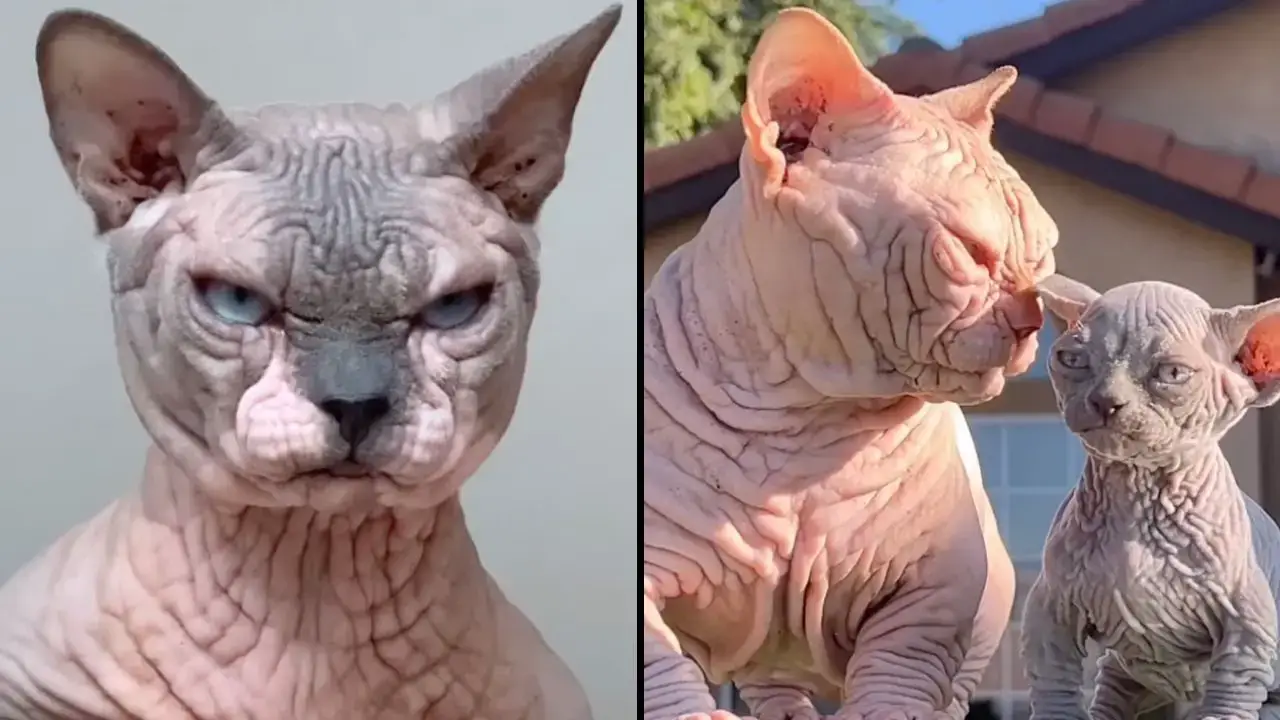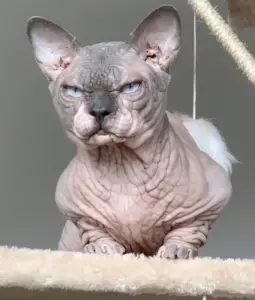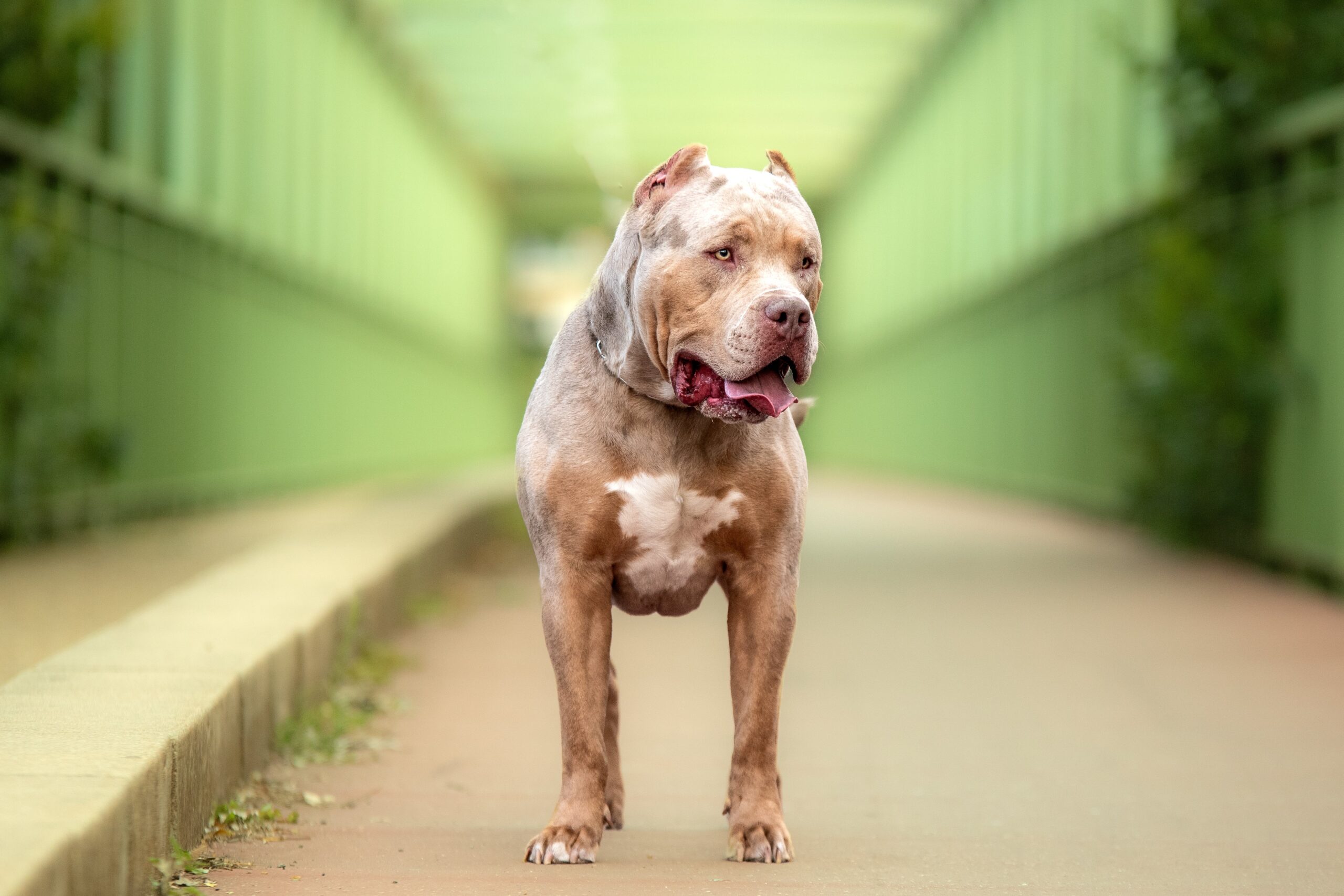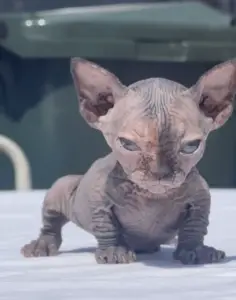
Credit: @bullycatsuk/@bullbinos/Instagram
Expert Issues Warning Over Rise Of ‘XL Bully Cats’
Experts are warning people against purchasing a newly emerged breed of cat.
The hairless breed, which resembles the controversial XL bully dog, is characterized by short legs and a lack of whiskers.
They were reportedly created by U.S. breeders who mixed the hairless gene from sphynx cats with the short-legged gene from munchkin cats.
Heavily promoted on social media, the breed is already being offered for sale in the U.K., despite numerous warnings.

It’s claimed the emerging breed was designed to resemble XL bully dogs, which have been subjected to a strict ban across England and Wales following rising attacks and fatalities involving the breed.
XL bully dog owners must now apply for a Certificate of Exemption.
While ‘bully cats’ are not considered a risk to others, there are calls for the breed to be banned due to their quality of life.
There are numerous concerns for the breed’s overall health and life expectancy.

Experts have warned in a research paper that due to the breed’s multiple health issues, their life expectancy is likely to be at least six years shorter than the average cat, reports The Telegraph.
Dr. Grace Carroll, an animal behavior and welfare specialist at Queen’s University Belfast’s School of Psychology, wrote in The Conversation: “We can discourage breeders from prioritizing aesthetics over the health and welfare of the animals by refusing to buy breeds with extreme traits.
“A fashion toward ethical breeding could ensure future cats are healthier, happier, and free to enjoy natural feline behavior like climbing, jumping, and lounging in the sun.
“We should let cats be cats.”

Dr. Carroll warns that XL bully cats are also at risk of ‘twice the number of challenges encountered by sphynx and munchkin breeds.’
As the breed has no whiskers, they lack an important tool to help them make sense of the world around them and navigate.
Their hairlessness also makes it ‘even more difficult’ to regulate their body temperature, potentially leading to respiratory infections.
Additionally, the academic warned that hairless cats are more vulnerable to sunburn and skin cancer.
Jeff Knott, Advocacy Director at Cats Protection, tells the Daily Mail that ‘if we don’t nip it in the bud,’ the breeding of cats with ‘extreme characteristics’ may ‘become an epidemic.’
Related Article: Woman Pours Water Over Neighbor’s Son After He Did The Same To Her Cat
Related Article: People Are Seriously Struggling To Understand Owner’s Freaky Photo Of ‘Headless Dog’